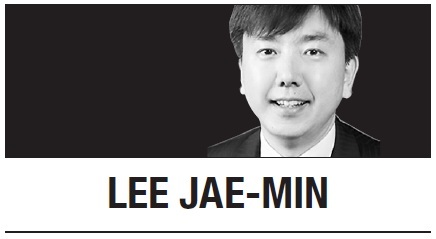
Is it indeed a ray of hope we are seeing? Or another big scam? There is conflicting information. Experts’ views diverge sharply. Still, memories of betrayal remain vivid: North Korea has reneged on its denuclearization promises many times previously -- eight times according to one count. So, nothing is certain or clear. And yet this is a great stride forward.
Just two months ago, during the final stretch to the Winter Olympics, we were dreading post-Olympics military confrontation, to put it in a mild way.
That we are finally talking about a series of summits -- an Inter-Korean summit in April and a US-North Korea summit by May -- is a sea change from where we were in January. A sigh of relief, albeit for the moment, and a small hint of peace.
Just for coming this far, diplomatic strategists in the Moon Jae-in government should be commended. Diplomatic maneuvers for the past several weeks have slid South Korea into the driver’s seat. Incredulous US has agreed to a summit, anxious Japan is trying to chip in, and worried China is all ears.
Diplomacy scores a success when it is needed most. The Moon administration has been criticized for being a passive player in the North Korean nuclear issue, but the past several weeks have proven critics wrong: Its patience and strategic moves are worthy of praise and recognition.
Come to think of it, this is the first positive news since the recent North Korean provocation in January 2016 with its fourth underground nuclear test.
Frustratingly, this may be North Korea’s last-ditch effort to buy time and cause a crack in tightening economic sanctions. At the last minute, Pyongyang may propose a condition that other countries cannot accept, only to derail negotiations and shift the blame.
Been there, done that. There is no guarantee that the upcoming meetings will resolve the crisis once and for all.
Yet with all these caveats, the fact that meetings are taking place is significant. Face-to-face meetings may stir up personal hatred and deteriorate the situation. On the other hand, direct talks may also help to find mutually acceptable common ground. At least, face-to-face meetings may help assuage fear and distrust, and prevent an inadvertent military clash. Tactful diplomacy could tip the balance. All things considered, it seems this time is different.
Most notable in this respect are repeated vows from Seoul and Washington that they won’t make the same mistakes again and that economic sanctions won’t be eased in any way unless complete, verifiable and irreversible denuclearization is guaranteed.
North Korea has to know that this time it has to be real, to get what it hopes for.
The intensity of economic sanctions is not comparable to what it used to be previously. The level of resolve of the United States and others in confronting the situation is unprecedented.
So, this time, North Korea will be different not because it wants to, but because it has to.
It will have to deal with eagle-eyed counterparts. This is the last opportunity to avoid the collision path. A failure at or from the summits would be just devastating. It would be taken as all means having been exhausted.
As we know the consequences, and as so much is at stake, this is a task that we cannot afford to fail. Shrewd diplomacy has gotten the first step right. It can and must complete the job: the most critical diplomatic task on any account.
Lee Jae-min
Lee Jae-min is a professor of law at Seoul National University. He can be reached at jaemin@snu.ac.kr. -- Ed.








